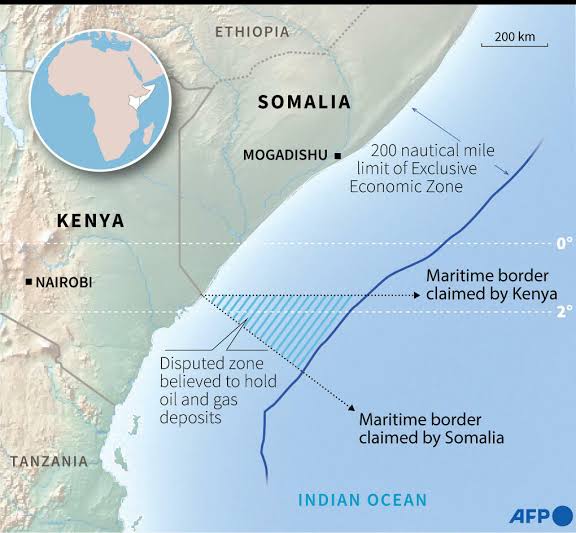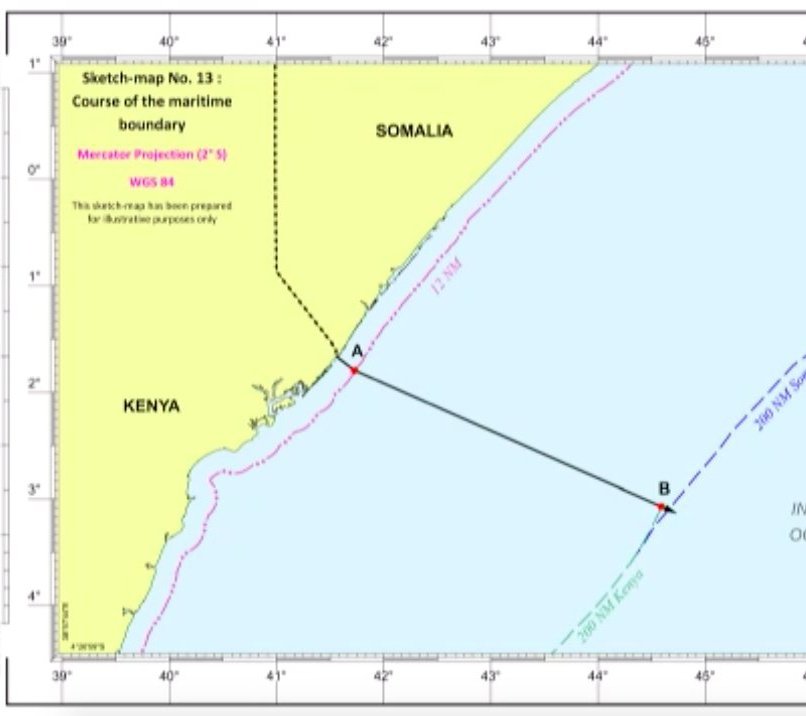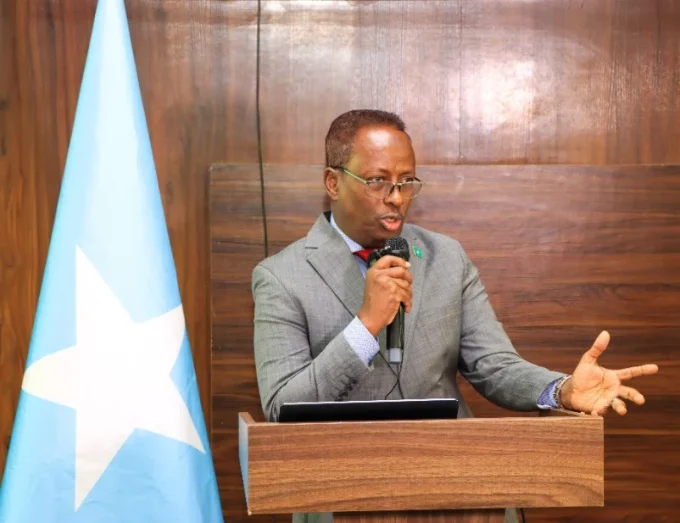The International Court of Justice, the UN’s top court, awarded Somalia control of most of the oil and gas-rich chunk of the Indian Ocean on 12th October 2021 after a long drawn legal battle with Kenya over sea border.
The ICJ ruled there was no agreed maritime boundary and drew a new border close to the one claimed by Somalia, although Kenya kept a part of the 100,000 square-kilometre (38,000-square-mile) area, chief judge Joan Donoghue said.
Kenya had claimed the entire area off the East African coast. Kenya had warned last week it would not recognise the jurisdiction of the Hague-based court, saying it was biased.
The court’s decision, which is final, could have far-reaching consequences for the future of relations between two key countries in one of the world’s most troubled regions. Somalia dragged Kenya to the ICJ in 2014 over the disputed patch of sea.

At the heart of the dispute is the direction that the joint maritime boundary should take from the point where the land frontiers meet on the coast. Somalia insisted the boundary should follow the orientation of its land border and thus head out in a 200 nautical mile line towards the southeast.
But Kenya said its boundary runs in a straight line due east — a delineation that would have given it a big triangular slice of the sea. The court in the end drew a line passing closer to the boundary claimed by Somalia.
Nairobi says it has exercised sovereignty over the area since 1979, when it proclaimed the limits of its exclusive economic zone (EEZ) — a maritime territory where a state has the right to exploit resources.
>> Kenya Played Hardball In The Battle For Border Control
The contested 100,000-square-kilometre (38,000-square-mile) area is believed to contain rich gas and oil deposits, and also has important fishing rights. Nairobi has already granted exploration permits to Italian energy giant ENI but Somalia is contesting the move.
Rulings by the ICJ, which was set up after World War II to resolve disputes between UN member states, are binding and cannot be appealed. The court has no overt means of enforcing judgments but can refer violations to the United Nations.
In a similar maritime border dispute between Colombia and Nicaragua, the case went back to court in September after Nicaragua accused Colombia of flouting a 2012 judgment by the court in its favour.
The verdict may sour diplomatic relations between the two countries after Kenya in 2019 recalled its ambassador in Mogadishu
Kenya pulled out of hearings in the Somalia case in March, after unsuccessfully arguing that the court did not have competence over the case. Just over two weeks ago, Nairobi notified the UN secretary-general that it was withdrawing its 1965 declaration accepting the ICJ’s compulsory jurisdiction. “As a sovereign nation, Kenya shall no longer be subjected to an international court or tribunal without its express consent,” the Kenyan foreign ministry said.
Somalia and Kenya had agreed in 2009 to settle the squabble through bilateral negotiations but negotiations broke down in 2014.
Somalia then took the matter to the ICJ later the same year, saying diplomatic attempts to resolve the row had failed. The verdict may further sour diplomatic relations between the two countries after Kenya in 2019 recalled its ambassador in Mogadishu after accusing Somalia of selling off oil and gas blocks in the contested area.
It tartly reminded Somalia of Kenya’s sacrifices in the battle against Al-Shabaab. Kenya is a major contributor of troops to AMISOM, an African Union army countering terrorism across Somalia.
>> High Price Of Raila Odinga’s Shoes Raises a Storm



![Joe Muganda has led organizations including Vivo Energy Kenya, Kenya Breweries Limited and Nation Media Group (NMG). [Photo/ File]](https://businesstoday.co.ke/wp-content/uploads/2021/10/Joe-Muganda-NMG-150x150.jpg)









Leave a comment